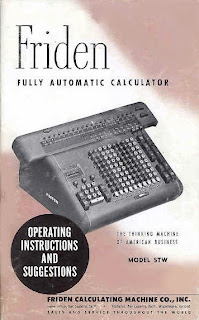The Body on Mount Royal
David Montrose [pseud. Charles Ross Graham]
Winnipeg: Harlequin, 1953
First the good news: our private dick is back to drinking beer. The bad news is that he's hitting the hard stuff more than ever.
What happened? When we first met Russell Teed, back in
The Crime on Cote des Neiges (1951), he specialized in investigating corporate embezzlement and fraud. A son of privilege, known for his discretion, Teed's introduction to Montreal's seamy and seedy came when he was hired to look into the husband of a childhood friend.

A year later in
Murder Over Dorval, the private detective who had once taken such pains to present his services as "private investigatory", returned as a self-described "skip-chaser... an eye, a Humphrey Bogart role." The corporate jobs were pretty much gone, and while Teed told us then that he was "sober, sensible, and not given to impulse", we could see that wasn't at all true. Things are much worse in
The Body on Mount Royal; Teed can't even go a few blocks to meet a friend for drinks without having to stop in at a tavern en route.
"Don't walk alone at night on Mount Royal," narrator Teed advises the reader, "a big, brave friend of mine looked awful funny without his wallet, wristwatch, glasses, pants, and false teeth." The ramblings of a barfly? Can't say I've ever had a problem myself. Never mind. A body
is found on Mount Royal, but as Teed discovers, the murder is not a mugging gone wrong.
The Body on Mount Royal is set in the united underworld of blackmail and illegal gambling. The mysterious Montrose seems to have been quite familiar with the latter – it fuels
Gambling with Fire, his fourth and final novel – yet I found myself less interested in barbotte and craps than with the women in Teed's life.
In previous outings the dick was crazed in his infatuations; here he's unhinged. The first woman to attract Teed's attention is Elena Giotto, "a tall girl, with a surface coolness that made you feel you should approach her with a gift, begging acceptance." Hours after their first fleeting encounter, he meets Lila, Elena's doppelgänger. She'll do in bed, but it's Elena he really wants.
And it's Elena he gets.
And following the sad model set by men everywhere, once he's won Elena Teed decides that it's Lila he really wants.
I've spoiled things a bit, though I rush to add that the above reveals nothing of the mystery in
The Body on Mount Royal. That said, those intending to read the book are warned that the following will spoil:
In the final two pages, Elena takes a bullet by throwing herself between Teed and an assailant. She dies. The assailant's head is split open by an axe-weilding Lila. He dies. Teed then empties a clip into the assailant's face as payback for those he'd killed: a blackmailer, a blackmailee, some innocent girl who got caught up in it all... but not Elena, the woman who loved him, the woman who saved his life, the woman who lies dead at his feet.
As I say, unhinged.
Lila then takes Teed's arm and suggests they take a trip to Bermuda.
Yes, unhinged.
The Body on Mount Royal is the final Russell Teed mystery. It's a wonder that he made it that far.
I'm betting he died of drink.
Trivia: The Body on Mount Royal is the only Montreal noir novel to mention the Aldred Building, the most noirish-looking structure in the city.
Full disclosure: I'm Consulting Editor for Véhicule Press' Ricochet Books series, of which this title is soon to be a part.
Object: A cheaply produced, poorly constructed mass market, it is blessed with my very favourite Harlequin cover. Yes, I like it even more than
To Please the Doctor and Doctor in Bondage.
Though the clothes are all wrong, that would be Lila on the cover. The bottle – also wrong – should look something like the one pictured above. By the way, the man clutching his head counts as the only image of Teed.
Access: The Body on Mount Royal enjoyed just a single printing.
One lonely copy is on offer online, and it sure ain't pretty: "Moderate spine slant, moderate edgewear, an unfortunate full-length vertical crease to front cover, a couple of other creases to front cover, the usual Harlequin tanning. Quite scarce. Good to Very Good." I'll agree that it's quite scarce, but can a copy so described be "Good to Very Good"? Price: US$75 (plus US$12 shipping).
Library patrons will find copies at Library and Archives Canada, the Toronto Public Library, the University of Calgary and the Thomas Fisher Rare Book LIbrary at the University of Toronto.




























































